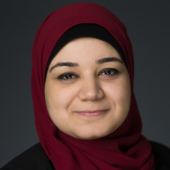Start date: October 2026
Duration: 3-4 years (full-time) or 6-8 years (part-time)
Location: Oxford
Deadline: 12 noon on 9 January 2026


Start date: October 2026
Duration: 3-4 years (full-time) or 6-8 years (part-time)
Location: Oxford
Deadline: 12 noon on 9 January 2026

Undertake original research into the social dimensions of the internet and related technologies with the DPhil in Information, Communication and the Social Sciences.
Delivered by the OII’s multidisciplinary faculty, this programme offers personalised supervision, advanced methodological training, and access to Oxford’s exceptional academic resources. You will design and conduct a doctoral project grounded in your discipline, while drawing on theories and techniques from across the social sciences to answer your research questions.
Over the course of the programme, you will produce an original piece of scholarship that makes a significant contribution to the field of internet research. Alumni go on to academic roles at leading universities and influential roles in government, industry, and the civil sector, applying deep expertise, critical thinking, and diverse methods to the challenges and opportunities of a connected world.
Our DPhil students explore a wide range of topics, often connected to our research groups and labs and situated within our research themes. This approach lets you dig deeply into disciplinary questions, for example in politics, economics, or sociology, while setting your work in the wider context of how the internet can be theorised and studied. Here are some examples of recent theses:
2025
2024





Every doctoral project will follow a distinct path, but all students pass the same key milestones. You will progress through three stages:
As a doctoral student, you’ll be assigned an academic supervisor who will guide your research and help you make the most of your time at Oxford. You’ll meet regularly, usually three to four times a term, to discuss your progress, refine your ideas, and plan next steps.
In the early stages, your supervisor will help you settle into academic life, identify training needs, and connect you with key people in your field. As your research develops, they’ll advise on research design, guide your data collection, and provide detailed feedback on your writing ahead of milestone assessments. In the final stages, they’ll comment on your thesis drafts, help you prepare for your viva, and offer career advice as you plan your next steps.
The following OII faculty members are currently accepting DPhil students:
Associate Professor
Professor of Human Behaviour and Technology
Director of Graduate Studies, Associate Professor, Senior Research Fellow
Professor of Data Ethics and Policy
Dieter Schwarz Associate Professor of AI & Work
Dieter Schwarz Associate Professor, AI, Government & Policy.
Associate Professor in AI and Society
Professor of Digital Markets and Competition
Associate Professor Digital South Asian Studies
Associate Professor
Deputy Director, Associate Professor, Senior Research Fellow
Associate Professor
Professor of Digital Ethics and Defence Technologies
Professor of Internet Geography
Associate Professor
Senior Research Fellow
Professor of Education, the Internet and Society
Associate Professor of Digital Culture
Professor of Technology and Regulation
Director, Associate Professor, Senior Research Fellow
Senior Policy Fellow, Associate Professor
Professor Viktor Mayer-Schönberger
Professor of Internet Governance and Regulation
The Oxford Internet Institute is located in the newly opened Schwarzman Centre. Students benefit from:

Alongside your thesis, you’ll receive regular training to build the skills that support your research and future career, from advanced research methods to academic writing, presentation skills, and peer review.
Our research facilitators offer guidance on everything from ethics and data management to fieldwork, grant applications, and data sharing. A lively calendar of seminars, lectures, workshops, and career talks brings leading voices in research, innovation, and policy to the OII, helping you engage with cutting-edge scholarship and grow your professional and academic networks. You’ll also benefit from tailored careers events and advice through the University’s Careers Service.
You’ll join a close-knit, multidisciplinary community with diverse interests and backgrounds. Weekly doctoral seminars give you the chance to present your work, exchange feedback, and spark new ideas. Our dedicated programme coordinator supports every stage of student life and can connect you with University services for disability, counselling, childcare, and financial support.
Our students come from a wide range of disciplines, backgrounds, and perspectives. We believe that meaningful insight into digital society depends on a diversity of thought and lived experiences.
I’m surrounded by so many brilliant people who share my niche interest in looking at the internet from so many different angles.
Philipp Riederle
DPhil student

I was supported and encouraged to build a strong research profile even before graduating.
Mona Elswah
former DPhil student

Hear from our students in their own voices what it’s like to study at the OII:






Graduates of the DPhil in Information, Communication and the Social Sciences go on to careers in:
The programme’s strong emphasis on innovative research for the social good, methodological rigour, and policy relevance prepares students for senior roles in a rapidly evolving digital landscape.
Read more about our alumni career paths:
All applications are submitted through the University of Oxford Graduate Admissions site. We recommend starting your application early to allow plenty of time to complete it and contacting your referees well in advance so their references can be submitted on time.
Both the full-time and part-time DPhil programmes share a single application deadline in January. Only complete applications, including references, received by this deadline can be considered.
Details on tuition fees, living costs, and funding opportunities are available on the University’s Fees and Funding page.
Scholarships include:
One of Oxford’s most prestigious funding schemes, Clarendon offers over 200 fully funded scholarships annually to exceptional graduate applicants. Covering tuition and living expenses, the scholarship also provides access to a vibrant academic and professional network. The Oxford Internet Institute nominates candidates during the admissions process. Further details of this scholarship can be found on the University’s Clarendon Scholarships page.
The ESRC funds research on social and economic issues through the Grand Union Doctoral Training Partnership, hosted by Oxford, Brunel, and the Open University. The OII offers an ESRC-recognised Digital Social Science pathway via MSc-to-DPhil (1+3) or DPhil-only (+3), available full- or part-time. Applicants must select the ESRC Grand Union DTP option in their Oxford graduate application and submit the Grand Union DTP Application Form to be considered. Studentships are open to both home (UK) and international candidates.
The AHRC offers scholarships for research in arts and humanities through the Open-Oxford-Cambridge Doctoral Training Partnership. Oxford awards a number of these each year across eligible Humanities and Social Sciences subjects. Applicants must meet the programme deadline, select the studentship option in their application, and submit the OOC DTP Application Form.
Oxford offers several targeted scholarships to support underrepresented groups:
The OII offers a limited number of DPhil Scholarships each year through the Shirley Scholars Fund, established in honour of our founding donor Dame Stephanie Shirley. Open to full- and part-time students from any country, all applicants offered a place are automatically considered, with awards made based on merit.
The DPhil programme has one application deadline in January. Start your online application early to allow plenty of time to complete it and secure references. Only complete applications received by the deadline (including references) will be considered. Read a guide to getting started with your application.
OII students are supervised by our faculty. We only admit students where appropriate supervision is available – see the list of eligible faculty. We strongly advise you to contact a potential supervisor before applying to check suitability. Once identified, email them a brief overview of your proposed research; they will then confirm if they can supervise your topic.
If you already have English language test scores at the required level achieved within two years of the start of the course to which you are applying, please include them in your application. However, you are not required to provide test scores when you submit your application. If you receive an offer of a place, you will be required to submit language test scores by a specific deadline as a condition of your offer. See the application guide for details.
The DPhil in Information, Communication and the Social Sciences suits students researching the internet and related technologies, and their societal impacts. Theses in this programme might draw on quantitative, qualitative, computational or mixed methods to address a broad range of questions about digital phenomena or questions about technology policy or practice.
The DPhil in Social Data Science is for students with strong quantitative skills who wish to develop their ability to analyse structured and unstructured data using advanced computational techniques, such as machine learning. Theses in Social Data Science might develop new computational approaches for analysing human behavioural data and/or apply such approaches to answer a social science question.
See OII DPhil alumnus Dr Bertram Vidgen’s advice on writing a strong proposal, and Prof Vili Lehdonvirta’s tips on choosing a research topic.
Course fees include University and College fees but not living costs. See the University’s fee status guidance and living costs advice to plan your budget.
Full-time students must be in residence for at least nine weeks each term, plus other key events such as induction and examinations. Part-time students are not required to live in Oxford but are expected to be present in Oxford for around 30 days a year. See the DPhil handbook for details.
Both full- and part-time students must attend in person during term time, due to the collaborative and multi-disciplinary nature of our programmes, and the principles that underpin Oxford education as a collegiate university. We do offer this DPhil programme on a part-time basis. The part-time DPhil has the same structure as full-time but is spread over 5–6 years.
Expect to spend at least 30 days in Oxford per year and to commit to around 20 hours of study per week. Classes for core courses in Years 1 and 2 are held one day a week in Michaelmas Term. Induction week (early October) and exams must be attended in person. You may attend seminars and supervisions online (at your supervisor’s discretion), particularly from Year 3 onwards.